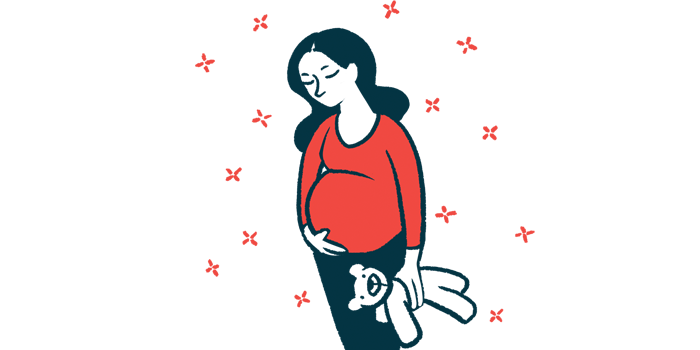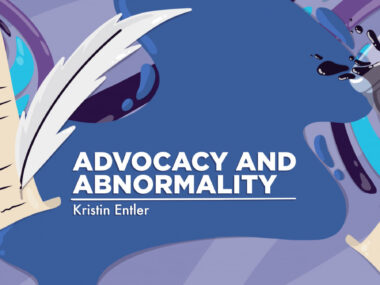CFTR Modulators Safe While Pregnant, Breastfeeding: Case Series
2 women had healthy babies despite advice to stop treatment
Written by |

Treatment with CFTR modulators was safe during pregnancy and breastfeeding in two women with cystic fibrosis (CF), according to a recent report.
Despite being advised to stop treatment, both women continued on their CFTR modulator during pregnancy and breastfeeding without any safety concerns.
According to the researchers, this case series adds to “growing literature supporting the continuation of CFTR modulators through pregnancy.”
The study, “Experience to date with CFTR modulators during pregnancy and breastfeeding in the British Columbia Cystic Fibrosis clinic,” was published in the journal Respiratory Medicine Case Reports.
CF is caused by mutations in the CFTR gene, which provides the instructions to produce a protein channel of the same name that controls the flow of water and salts through cells. Defects in CFTR result in the production of thick and sticky mucus that accumulates and impairs the function of airways and other organs, including the pancreas. Patients often develop exocrine pancreatic insufficiency, in which the pancreas is unable to release digestive enzymes to break down food in the intestines.
CFTR modulators are a recently developed class of therapies that work to improve the functionality of the CFTR protein in the presence of specific CF-causing mutations.
These therapies have improved patients’ care and provided an opportunity for successful CF management during pregnancy.
Yet, data on the safety profile of CFTR modulators to guide patients during pregnancy is still scarce. The Phase 3 trials that supported their approval have excluded pregnant women with CF. Also, recent studies suggest the therapies can cross the placenta and reach the fetus’ blood circulation.
In this study, researchers at the University of British Columbia, Canada, describe the case of two women with CF, part of the British Columbia CF program, who continued on CFTR modulators during pregnancy and breastfeeding.
Patient 1
The first woman was diagnosed with CF at 10 months of age. She became pregnant in 2015 at age 33 while taking Kalydeco. At the time of her pregnancy, the patient was deemed relatively healthy, with a forced expiratory volume in 1 second (FEV1) — a standard measure of lung function — in the 70%-75% range, and was physically active.
She was positive for Pseudomonas aeruginosa, the chief bacterial agent in CF lung infections, among other pathogens. She also had a history pancreatic insufficiency, among other conditions, and had her gallbladder removed.
Kalydeco treatment had been initiated in 2012. The patient typically experienced a pulmonary exacerbation — times when lung symptoms suddenly worsen — once a year thereafter.
She presented to the clinic at around eight weeks of gestation. Although advised to discontinue Kalydeco due to potential, yet unknown, fetal defects, the patient decided to continue the treatment.
Analysis of sputum (also called phlegm, a thick mucus coughed up from the lungs) throughout pregnancy came out positive for the bacteria Pseudomonas aeruginosa and Staphylococcus aureus. The patient experienced one exacerbation in the second trimester, for which she received treatment with antibiotics and an inhaled corticosteroid. Treatment with the antibiotic Cayston (aztreonam) continued throughout the remainder of her pregnancy, given every other month.
An ultrasound at 35 weeks showed no concerning issues, except for mild polyhydramnios, an excessive accumulation of amniotic fluid. An emergency cesarean section was performed at 38 weeks due to the fetus having an abnormal heart rate.
After the birth of a healthy boy, the woman received prophylactic (preventive) treatment with antibiotics for one week. She maintained a normal lung function, as shown by a FEV1 of 82% and a forced vital capacity (FVC) of 101% eight weeks after delivery. FVC is the amount of air a person can exhale after a deep breath.
She continued on Kalydeco while breastfeeding, until the baby was about 3.5 years. No issues were reported, and her son was healthy and physically normal at the time of study conclusion, despite a speech delay assessed at 2.5 years of age.
Patient 2
The second patient, a 33 year-old woman, remained on Trikafta throughout pregnancy and into breastfeeding. Before pregnancy, she had an abnormal predicted FEV1 of 53% and a body mass index (a measure of body fat) of 23 kg, indicative of normal weight. Trikafta was initiated in March 2020. She had been treated over approximately three years with Orkambi.
The patient had already a healthy daughter, born in June 2005, via an uncomplicated delivery. She had a first trimester miscarriage in October 2020.
Similar to the first patient and despite advice regarding the scarcity of safety data on Trikafta, the patient decided to continue her treatment. Before Trikafta, she had frequent exacerbations and a poor lung function, as shown by a FEV1 of 30%. She had been listed for a lung transplant, but was delisted after starting Trikafta.
Her medical history included CF-related diabetes and pancreatic insufficiency, among other conditions. Her sputum also was positive for P. aeruginosa, S. aureus, and Escherichia coli.
She was treated for a pulmonary exacerbation at 31 weeks of gestation. Two weeks later, she experienced a premature rupture of the membranes and a course of corticosteroids and antibiotics was prescribed.
She delivered a girl at 35 weeks following an emergency C-section. The baby had hypoglycemia (low blood sugar) and jaundice — yellow discoloration due to high bilirubin levels — and was placed in the neonatal intensive care unit for four days. Both mother and baby were doing well up to study completion. Breastfeeding was ongoing.
“While both women in this case series were advised to discontinue CFTR modulators during pregnancy, they would likely receive a very different message today, with growing evidence supporting the continuation of CFTR modulators through pregnancy and in breastfeeding,” the researchers wrote. “We must however remain mindful that at present, there is a paucity of robust high quality data. Thus, continuation of CFTR modulators during pregnancy and lactation requires careful multidisciplinary considerations and patient discussion regarding risk and benefit.”







